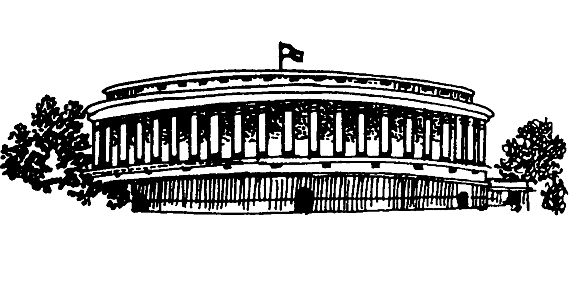“If the law is considered as ‘the enterprise of subjecting human conduct to the governance of rules,’ then this enterprise is being conducted, not on two or three fronts, but on thousands.”
–Tom W Bell
Recently, the government asked the Law Commission to examine the implications of bringing in a Uniform Civil Code (UCC). The government informed the Rajya Sabha too that it had a ‘duty’ to bring in the UCC.
There are few issues in India as contentious, as complicated and as capable of stirring up passions as the UCC . Should all Indians be subject to one set of laws relating to personal matters like marriage, succession and adoption, or should the law be cognizant and accommodating of the differences between different religious and cultural traditions?
It is a particularly interesting question for liberals. On the one hand, liberals call for the institution of the rule of law in all matters—one that imposes the same rules and standards on everyone. On the other hand, it is not the most liberal proposition to have a standard, rigid set of personal laws that are indiscriminately applied to the utter disregard of the wishes, customs, practises and conventions of the people. The liberal point of view recognises the law coming not primarily from the will and plans of the state; but to a great degree, from the will of the people.
India has had a rich history of personal laws, particularly till the early 20th century, with different communities and religions evolving their own conventions. Even our erstwhile colonial rulers respected the personal laws of various communities—while people were to be subjected to the same criminal code, religious laws and customs were to remain outside the purview of standardisation and codification. As we attained independence and drafted our constitution, the same sense of caution led us to not institute UCC, but instead merely put it as a non-justiciable Directive Principle.
Justice and Secularism
If justice is the ultimate consideration, as it must be, then how are the ends of justice served? By bringing in a UCC or by recognising the diversity in personal laws?
And if we are a secular nation, as I am told we are, then how the ends of secularism served? Does secularism ask us to fashion laws in a manner that it is indifferent to the customs of the people? Or does secularism ask for a system of law that is accommodating of the varied customs and traditions across communities? It might well be that the debate around personal laws is inextricably tied to the brand of secularism that India has come to follow—one that calls not for the western ideal of separation of state and religion, but ‘equal treatment’ of all religions. And equal treatment entails state intervention, for better or for worse.
Regardless, we cannot bring in legislation that is absolutely divorced from the wishes and the sentiments of the people. Even if it is morally desirable, it is not always politically feasible. Given all this, what approach and what set of laws best serve the interests of justice, of secularism and, lest we forget, (as we often do) of the people?
Uniformity Vs Pluralism?
It is one thing to recognise the problem—that there are elements in our personal laws that are problematic and discriminatory toward women. But it is another thing to find the correct remedy. A Uniform Civil Code may not be the solution it is purported to be. There is nothing inherent about legal uniformity that guarantees just outcomes, just as there is nothing inherently wrong or unjust with legal pluralism and diversity. You can have corruption seep in in a universal code about as easily as in a legally pluralistic system. Our present system of personal laws at least gives the option of opting out from particular personal laws that one might find restrictive to opt for Special Marriages Act, 1954. Will that kind of an alternative be available if we have a UCC? One can’t say, we don’t really know what a Uniform Civil Code will look like.
One must be sceptical of all codification, be it a uniform code or a plural code with a variety of personal laws (as we presently have). Codification lends a certain element of permanence to social norms—the code might endure while the norm changes. This may potentially stall progress. Indeed, it is assumed that our system of personal laws has led to legal pluralism and an accommodation of all possible norms relating to personal law. In truth, as this piece notes, there is such a diverse variety of viewpoints on matters relation to personal law that no set of personal laws (let alone one law) can do justice to it. The problem is not that we haven’t evolved the perfect law or set of laws that caters to all diversity, but that the very exercise of codification to tackle this is futile, or lacking at best.
But if codification is not the answer, or is at best an answer fraught with difficulties, then where does the answer lie?
From Status to Contract
The answer might lie in an approach that eschews codification for contract—an approach that does not seek to come up with the perfect code, but allows the people to work out the law amongst themselves. There could be acceptable minimum standards that all contracts relating to personal laws must adhere to, but beyond that, people should be able to work out the details. Tom Bell makes a persuasive point about the meaning of law, and it is relevant in this debate—“If the law is considered as ‘the enterprise of subjecting human conduct to the governance of rules,’ then this enterprise is being conducted, not on two or three fronts, but on thousands.”
The Jurist and historian Henry Sumner Maine, who incidentally also brought in the legislation that later became the Special Marriage Act, 1954 , made a very interesting distinction. He characterised the movement from more primitive to more advanced systems of law as a movement ‘from status to contract.’ The more ancient and primitive systems of law organised societies on the basis of status, where your lot in life, and your rights and obligations were determined by the social status you were born in. But as societies and systems of law progressed, people moved away from rigid social structures, and could go out and make voluntary, contractual agreements. A similar progression is required, perhaps, in our personal law regime. One that allows people to leave the confines of their status, religion and the dictates of particular personal laws, to move to contractual arrangements where they can create the law amongst themselves.
***
References
- Uniform Civil Code: A Heedless Quest? (EPW)
- The Trap of Personal Laws (Indian Express)
- We need uniform civil law, not uniform civil code
Read More: The Generality Principle
Post Disclaimer
The opinions expressed in this essay are those of the authors. They do not purport to reflect the opinions or views of CCS.






